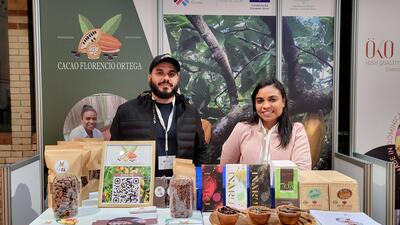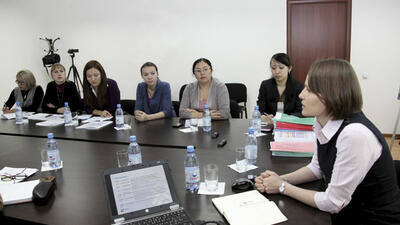
Trinidad and Tobago face most NTMs from CARICOM countries
Exporters in Trinidad and Tobago face the most burdensome non-tariff measures (NTMs) from partner countries in the Caribbean Community (CARICOM), according to a new study by the International Trade Centre. Addressing these obstacles will lead to greater transparency of business practices and regulations, making it easier to export goods to countries around the world.
A survey of 500 businesses, conducted between August 2011 and April 2012, reveals that 53% of trade obstacles are within CARICOM. Barbados and Jamaica alone account for just over one-half of all NTM cases in the region.
The businesses surveyed for the study represent the most important export sectors of Trinidad and Tobago, including those involved with food and agro-based products, chemicals, metals, machinery, equipment and electronics, and the manufacturing sub-sectors of wood and textiles. Excluded from the study are the minerals, petroleum and services sectors.
Technical measures
The survey shows that 22% of exporting companies and 30% of importing companies face burdensome NTMs and other obstacles to trade.
Technical measures make up the majority of burdensome NTM cases applied by partner countries. These consist of conformity assessments (32%), which provide proof about compliance with underlying technical requirements, and technical requirements (29%), which establish product specifications that exported products need to comply with in order to gain market access.
Most NTMs in developed-country markets, such as the United States of America, Canada and the United Kingdom of Great Britain and Northern Ireland, are related to conformity assessments and technical requirements. High charges, such as for laboratory testing, are also reported to be a major obstacle.
Obstacles in the business environment
NTMs are closely associated with procedural obstacles and inefficiencies in the trade-related business environment, which are caused primarily by delays in regulation and high fees.
Delays account for 45% of cases affecting exports and 44% of cases affecting imports. Other procedural obstacles and inefficiencies involve extensive documentation, the arbitrary behaviour of officials on regulation and the high number of administrative organizations.
Customs is the most frequently reported agency to cause procedural obstacles and inefficiencies in the business environment. One-fourth of all cases affecting exports and one-half of cases affecting imports are reported there.
Sectors affected by NTMs
According to surveyed companies, the food and agro-based products sector is the most affected by NTMs, with almost 40% of exporters reporting difficulties. A majority of the difficulties are related to delays in obtaining required health, sanitary and phytosanitary certificates. Exports consist mainly of processed goods, such as beverages, milk products, baked goods, and preserved fruit and vegetables.
In the manufacturing sector, survey findings reveal that 18% of exporters face obstacles. The most strongly affected sub-sectors are wood, wood products and paper, and chemical products. As in the case of food and agro-based products, a large proportion of NTMs applied by partner countries was closely associated with procedural obstacles and inefficiencies in the trade-related business environment.
Policy options at the domestic level
The study provides policy recommendations to address NTMs:
1. Strengthen inspection and other certification processes at key government agencies by upgrading systems, reducing delays by reviewing processes to identify and remove bottlenecks and setting up a public-private sector committee to address broad trade facilitation issues;
2. Continue on-going improvements at customs and at ports, and conduct comprehensive needs assessments when necessary;
3. Expand and upgrade testing laboratories to meet international standards, and more generally, build a stronger national quality infrastructure to support the work of testing laboratories;
4. Increase representation of businesses in foreign markets by conducting market surveys, providing market intelligence and establishing trade facilitation offices in selected markets; and
5. Prioritize and enact legislation to support trade, in part by removing outdated legislation.
Policy options
Since survey results show that most NTMs and procedural obstacles and inefficiencies in the trade-related business environment are encountered in trade with CARICOM countries, discussions within a regional context are a priority.
Key issues to address with CARICOM countries include lengthy product registrations, complex labelling requirements, excessive certification requirements, inconsistent rules for certificates of origin and customs procedures, and delays in obtaining suspension and safeguard certificates.
One initiative to pursue at the bilateral level is the establishment of mutual recognition arrangements (MRAs) between agencies. MRAs have the potential to remove obstacles associated with both technical requirements and conformity assessment.
Trinidad and Tobago’s trade agreements currently have little coverage of NTMs. To ensure success, public- and private-sector partners will have to work to together to formulate strong negotiating positions and push for changes in policies, processes and procedures.









